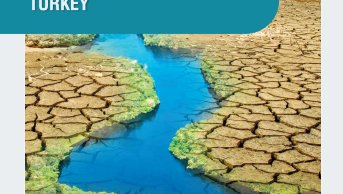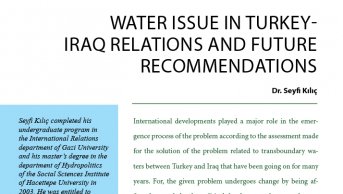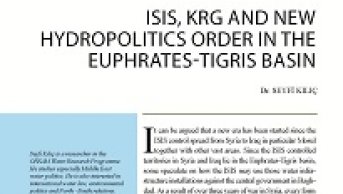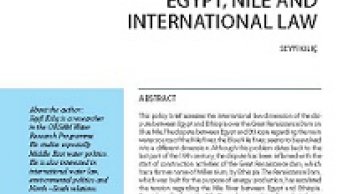Israeli-Palestinian Peace Talks and Israeli Presence along the Jordan River Valley
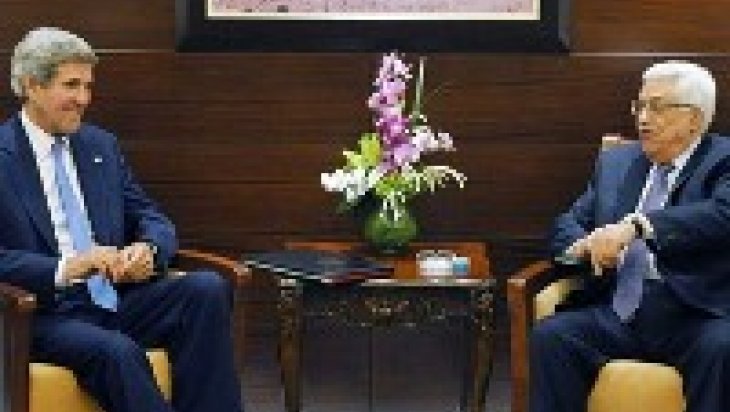
In the peace talks between Israel and Palestine which have regained momentum with the initiative of the U.S. Secretary of State John Kerry, the fact that Israel wants to maintain its military presence in along the Jordan river valley emerges as a new area of conflict in addition to many other problems. Although Israel's insistence on this issue is based on security which is a controversial concept, it should be taken into consideration that there are other reasons as well. In certain assessments on the subject, it is put forward that in case of Israel's withdrawal there would not be an end to it, and existence of the State of Israel would be jeopardized. However, considering from a historical aspect, it is known that Israel has withdrawn from Sinai, Lebanon and the Gaza Strip for three times in total so far. And it cannot be said that these withdrawals have caused to any military problem.
Israel's desire to maintain its military presence along the Jordan river valley cannot possibly be explained by threat(s) caused by Syria which is in civil war; Iraq which has just come out of the U.S. invasion and is still in ethnic and sectarian conflict; or by Jordan which is not military-related. Even though it cannot be explained by a single reason, Israel's aforesaid demand might be assessed as a demand for maintaining its occupation in the West Bank, and thus to both control the Jordan river and also maintain its dominance over the mountain aquifers from which Israel illegally supplies water.
Despite the small amount of water carried by the Jordan River, it has an important role in both international water policy and international policy. Jordan, Israel, Syria, Lebanon and Palestine are located in the river basin; and the basin is the major surface water resource for Israel and Jordan. For Palestinians, on the other hand, currently there is no water consumption activity from this resource.
The Jordan River is the main surface resource of Israel. The river with an average annual flow of 1527 million cubic meters has three tributaries which are sources of the river: Dan, Hasbani and Banias. While the Dan tributary is located in pre-1967 borders of Israel, Hasbani is located in Lebanon and Banias is located in Syria. Also, Hasbani and Banias tributaries have been under Israeli control since the 1967 war. These three tributaries that join each other in Israeli territories flow through Huleh marshes which started to be drained by Jewish settlements in 1950s, and flow into the Lake Tiberias (Sea of Galilee). The part of the river up to the Lake Tiberias is called the Upper Jordan River. The main water structure known as the National Water Carrier of Israel takes its water from this lake and carries it to the densely-populated coastal region and to agricultural lands in the Negev desert.
The part of the river from the south of Lake Tiberias to the Dead Sea is called Lower Jordan River. In this part; Yarmouk, Zarqa and some other small tributaries join the river. Yarmouk river is the largest tributary of the Jordan river. It originates in Syria, and borders with Jordan after arching through southern Syria, and then flows into Jordan and joins the Jordan river from the south of Lake Tiberias. Israel diverts some 70-100 million cubic meters of water per year from the Yarmouk to Lake Tiberias
While Israel's having control over Syrian and Lebanese territories comes to mean that the Upper Jordan river is completely under control of Israel, the occupation of the West Bank causes to unilateral drawing of ground water in the area. The Israeli occupation of the West Bank not only prevents Palestinians from using the ground water, but also it prevents Palestinians from being riparian to the Jordan River.
The situation of water resources which always plays an important role in peace talks gains more importance due to the global climate change. It is assessed that Israel which is aware of this fact has been pursuing a negotiation process aiming to keep Palestinians from becoming riparian to the Jordan river by asserting its security concern which is a classical rhetoric. Also, it has been reported on the Israeli media that Palestinians have demands beyond the pre-1967 borders. What is meant by these news is Palestine's demand for water from the Sea of Galilee which is the largest water resource of Israel. Which is a natural demand for a country that is riparian to the Jordan River.

